
Egypt"s diverse labor force drives commodity trade growth. "
The population of Egypt, which is over 100 million people, provides a significant labor force for companies operating in the country. The large population offers a pool of potential employees with diverse skill sets and expertise across various sectors. Companies rely on this labor force to fill positions and drive their operations. The sizeable population of Egypt also serves as a significant consumer base for companies. With a large domestic market, companies have the opportunity to target and sell their products or services to a substantial number of potential customers. This population provides a demand for various goods and services, driving economic activity.
The population of Egypt represents a significant market potential for both domestic and international companies. With a growing middle class and an increasing disposable income, there are opportunities for companies to tap into the consumer market in Egypt. This potential attracts companies to establish a presence in the country or expand their operations to cater to the needs and preferences of Egyptian consumers. Companies operating in Egypt contribute to job creation and employment opportunities for the population. They hire individuals across different sectors, providing income and livelihoods for many Egyptians. This is particularly important in addressing unemployment challenges and boosting economic development.
The corporate tax rate in Egypt has generally been around 25 percent, a situation that is seen for the personal income tax rate in Egypt at first was 22.50 percent, which today is seen at 34.00 percent. The sales tax rate in this country in previous years was 10 percent, which today is reported at 14 percent. The rate of social security in Egypt is estimated at 40.00 percent, although this rate has been stable from previous years until today. Egypt is one of the northeastern countries of Africa. It borders Libya to the west and Sudan to the south. Egypt is bordered on the north by the Mediterranean Sea, on the Sinai Peninsula by Israel, and on the Gaza Strip by Palestine.
The north of Egypt generally has a pleasant climate due to its proximity to the Mediterranean Sea. The eastern and western deserts and the warm weather seen in this country have certain classifications. Cold winters are sometimes seen up to 25 degrees below zero in all parts of Egypt. The summers are hot and the weather is dusty in the spring. There are many monsoon storms in this country. In Egypt, especially in the city of Cairo, there are historical mosques and museums of ancient Egypt. The country has seen the largest film and music industry. The cities of Egypt have many sights. Egypt has been under British occupation throughout history, and of course, it was able to liberate itself after a certain period.
The presence of companies and their operations in Egypt contributes to the country's overall economic growth. Companies generate revenue, pay taxes, and contribute to the gross domestic product (GDP) of the country. Their activities stimulate economic activity, investment, and productivity, which in turn can lead to improved living standards for the population. Companies in Egypt often invest in the training and development of their employees. This helps enhance the skills and capabilities of the workforce, improving their employability and potential for career advancement. The population benefits from the acquisition of new skills, which can have long-term positive effects on individuals and the overall economy.
-
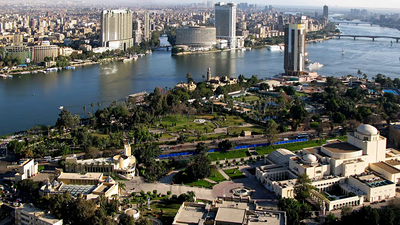
Egypt"s population exceeds 100 million, providing a vast labor force and consumer market for businesses. This demographic advantage allows companies to access a diverse talent pool and cater to a significant domestic market. The growing middle class and increasing disposable income present opportunities for both local and international firms to expand their operations. Companies contribute to job creation, addressing unemployment while boosting economic development. The corporate tax rate stands at approximately 25%, with personal income tax rates varying from 22. 5% to 34%. Sales tax has increased from 10% to 14%, while social security remains stable at around 40%. Egypt"s strategic location in northeastern Africa, bordered by Libya, Sudan, the Mediterranean Sea, Israel, and Palestine, enhances its trade potential.
The country"s rich cultural heritage and historical significance attract tourism and investment. Companies operating in Egypt not only generate revenue but also invest in employee training, enhancing workforce skills and employability. This investment fosters long-term economic growth and improved living standards for the population. "
-
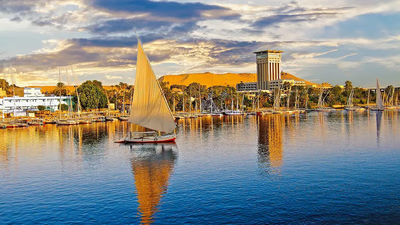
Egypt"s economy is diverse and strategically located, making it a vital trade partner in the Middle East. Key sectors include agriculture, manufacturing, services, and energy. The country imports a variety of goods such as agricultural products, machinery, chemicals, and consumer items. Trade with Egypt supports economic growth by facilitating development projects and enhancing market access. Its geographical position near the Suez Canal further boosts its importance in global trade routes. Despite political challenges and external pressures, particularly from the US regarding Iran-Egypt relations, Egypt remains a promising destination for exports due to its large market size and economic potential. The country’s non-oil export strategies are crucial for expanding trade relations with regional partners like Iran. While there are hurdles such as tariffs and regulatory issues, ongoing reforms aim to improve the business environment for foreign investors.
Overall, engaging in trade with Egypt not only benefits individual economies but also contributes to regional stability and development. "
-
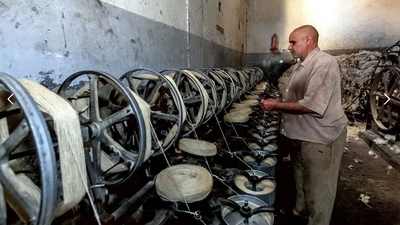
Egypt stands as a pivotal economic force in the MENA region, characterized by its strategic location and diverse economy. The country boasts a well-developed financial sector, with Cairo serving as a hub for banking and financial services. The Egyptian Exchange attracts both domestic and international investors, reflecting the country"s robust economic framework. Egypt"s active participation in international trade is underscored by its membership in the WTO and various trade agreements with key partners like the EU, Arab nations, the US, and China. The Suez Canal enhances Egypt"s significance in global maritime trade. Recent economic indicators show positive growth trends in import-export sectors and foreign direct investment (FDI), alongside ongoing government reforms aimed at improving the business environment. Despite challenges such as foreign debt and fluctuating currency values, Egypt"s commitment to attracting investment in energy, infrastructure, and manufacturing remains strong. Additionally, tourism plays a crucial role in the economy, contributing significantly to foreign exchange earnings.
Overall, Egypt"s strategic initiatives position it favorably within regional trade dynamics. "
-
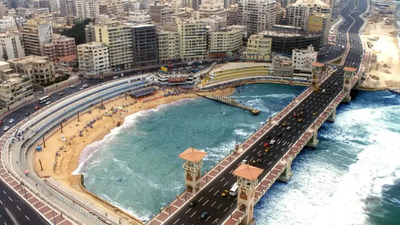
Cairo, the capital of Egypt, serves as the political, economic, and cultural center of the nation. With a population exceeding 20 million, it is one of Africa"s largest cities. Cairo is renowned for its historical landmarks such as the Great Pyramids of Giza and the Egyptian Museum. The city boasts modern infrastructure alongside its rich heritage. Alexandria, Egypt"s second-largest city, is known for its Mediterranean charm and historical sites like the Citadel of Qaitbay. Giza is famous for its pyramids and attracts numerous tourists. Other notable cities include Port Said, recognized for its luxurious atmosphere; Suez, a hub for investment; and Luxor, often called the world"s largest open-air museum due to its ancient temples and tombs. The Greater Cairo area significantly contributes to Egypt"s GDP and houses most private sector services.
Despite calls for decentralization, government functions remain concentrated in Cairo. The city also has a thriving informal economy that employs a large portion of its workforce. Aswan, located near Sudan, is known for its agricultural significance due to the Nile River and features attractions like Nubian villages and temples. Overall, Egypt"s cities offer diverse economic opportunities and cultural experiences. "
-
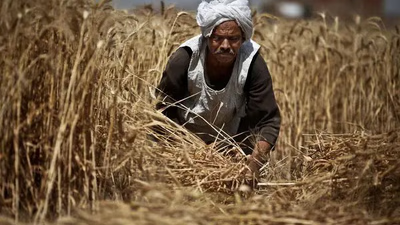
Egypt"s economy is significantly influenced by agriculture, particularly due to the fertile Nile River, which supports the cultivation of crops like cotton and wheat. The Suez Canal is another critical economic asset, generating substantial revenue through tolls from ships. In 2020, Egypt"s GDP grew by 0. 26%, with a total GDP of $332. 90 billion and a notable contribution from the agricultural sector, estimated at over 32%. The country also produces significant amounts of oil and gas, with daily oil production at 688,100 barrels and annual gas production at 76. 40 billion cubic meters. Exports primarily consist of crude oil, petrochemicals, textiles, and hardware.
The manufacturing sector is diverse, encompassing textiles to automotive production. Foreign direct investment (FDI) is actively sought to enhance industrialization and economic growth. Remittances from Egyptians working abroad play a crucial role in supporting domestic consumption. The services sector, including banking and telecommunications, is vital for economic stability. Recent growth rates indicate a positive trend in GDP per capita and various sectors such as agriculture and construction are also experiencing growth. Egypt"s rich cultural heritage boosts tourism, further contributing to the economy by generating foreign currency. "
-
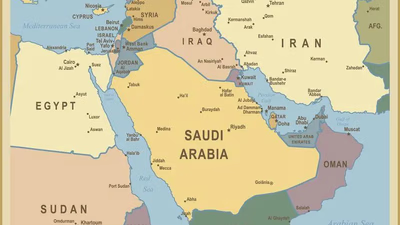
Egypt"s geographical position in northeastern Africa, bordered by Libya, Sudan, the Mediterranean Sea, Israel, and Palestine, influences its climate and economy. The northern region enjoys a temperate climate due to the Mediterranean, while the eastern and western deserts experience extreme temperatures. Economic indicators show a mixed performance; construction contributes 1% to GDP, while mining has seen a 10% growth. The public transport sector also shows a positive trend with a 4% increase. However, the current account balance has faced challenges with a negative GDP situation in recent years. Import and export sectors have shown growth rates of 7% and 3%, respectively. Despite these fluctuations, foreign debt has risen by 9%, and tax rates have increased significantly over time. Cultural traditions in Egypt are evolving, reflecting the complexities of its society. "
-
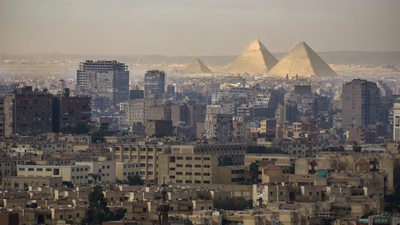
Egypt"s economy is characterized by a GDP of $332. 90 billion, with significant contributions from agriculture, oil, and gas sectors. Approximately 28 million people are employed, with a notable increase in participation rates. The agricultural sector accounts for over 32% of GDP, while oil production stands at 688,100 barrels per day and gas production reaches 76. 40 billion cubic meters annually. Key exports include crude oil, petrochemicals, cotton, textiles, and hardware. Imports primarily consist of machinery, equipment, food products, chemicals, and timber. The annual GDP growth rate is estimated at 7.
70%, with notable increases in various sectors such as agriculture (12%) and mining (10%). Egypt operates under a republican political structure where the president is elected every six years by popular vote. The People"s Council (Majlis al-Shabi) consists of 454 members; most are elected by the public while others are appointed by the president. The prime minister is appointed by the president and leads the cabinet. An advisory council known as Al-Shura also plays a role in governance with its own elected members.
-
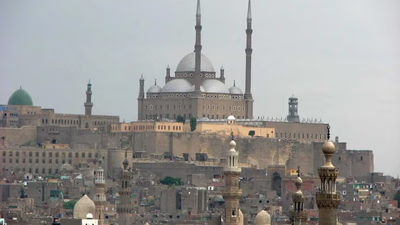
Egypt"s rich cultural heritage is deeply rooted in its ancient civilization, characterized by iconic pyramids and temples. The country celebrates its pharaonic past through various festivals and museums, while the Arabic language, particularly the Egyptian dialect, plays a crucial role in daily life. Egyptian cuisine reflects diverse influences, featuring dishes like ful medames and koshari. Recent improvements in healthcare and economic structures have enhanced the quality of life for many Egyptians. The political landscape remains stable, with efforts to minimize corruption and improve social security. However, strict laws govern social interactions and respect for cultural beliefs. Egypt"s economy is diverse, with significant contributions from agriculture and industry, particularly in cement and food production. Despite potential trade opportunities with countries like Iran, political tensions hinder full economic collaboration. Family values are central to Egyptian society, emphasizing strong kinship ties and traditional gender roles.








